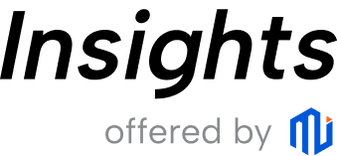Is Robinhood Stock a Buy Now?
Key Points
Robinhood is an upstart discount broker.
The company has grown rapidly, expanding aggressively into new areas as it disrupts the brokerage business.
Robinhood went public in mid-2021, meaning it hasn't faced a material market downturn as a public company.
- 10 stocks we like better than Robinhood Markets ›
There's a movie trope around the rite of passage, which is usually some test of a protagonist's maturity or capacity to survive. In real life, a rite of passage is usually a major event or challenge that marks the point at which a person is considered an adult.
For a young company like Robinhood Markets (NASDAQ: HOOD), this moment hasn't arrived yet, and conservative investors should be cautious until it does. Here's what you need to think about if you are considering buying Robinhood right now.
Where to invest $1,000 right now? Our analyst team just revealed what they believe are the 10 best stocks to buy right now, when you join Stock Advisor. See the stocks »
Robinhood is very young
Wall Street has a very short memory, so a company that has only been public for a few years can still seem like it has been around for ages. That's the case with Robinhood, which only held its initial public offering (IPO) in mid-2021. To be fair, the business was operating well before it went public. But there's a big difference between being a private company and being a public company.

Image source: Getty Images.
It is essential to recall what the mid-2021 IPO helped Robinhood avoid as a publicly traded company. The bear market and recession that accompanied the coronavirus pandemic had already ended by that point. The discount broker was able to operate as a private business during that period, which shielded it from having to disclose its finances to the market. And the Great Recession between 2007 and 2009, which drove many financial companies into bankruptcy, was missed entirely.
The only kind of market that Robinhood has seen as a public company is, effectively, a bull market. It is relatively easy for a broker to perform well when stocks continue to rise. The real test of the business will come when the S&P 500 index (SNPINDEX: ^GSPC) starts falling and then keeps falling. Until it survives such an event, Robinhood is probably only appropriate for more aggressive growth investors.
Robinhood has achieved a lot in a short period of time
To be fair, Robinhood is not some tiny, also-ran business. It competes very well with some of the largest players in the discount brokerage industry. In fact, Robinhood basically forced the industry to cut commission costs because customers flocked to its zero-commission model. It has used the rapid growth it achieved to push even more boundaries. For example, it offers a cryptocurrency trading platform, it has a subscription service, and the company has dipped its toes into sports betting.
Robinhood is an innovative and aggressive business and a really exciting story stock. However, after a 280% price advance during the past year, it is also a very expensive stock. To provide just one metric on that, the stock's forward price-to-earnings ratio is a lofty 51. For reference, discount broker icon Charles Schwab's (NYSE: SCHW) is half that at 17, and Interactive Brokers' (NASDAQ: IBKR) P/E is 27. Investors are pricing in a huge amount of good news into Robinhood shares.
The problem with Robinhood's lofty valuation is that the stock appears to be priced for perfection. No company is perfect. And when Robinhood actually faces a real test of its business when the next bear market strikes, the premium it's been given could quickly vanish. That might be an overreaction, or it could be appropriate. Right now, there's no way to know because Robinhood hasn't been tested as a public company.
Only risk-takers should buy Robinhood
Robinhood has achieved impressive things and deserves credit for those accomplishments. In fact, it seems likely that it will, indeed, survive its rite of passage when it finally comes along. However, given the lofty valuation the stock is trading at, that test could be very painful for investors. This is likely a stock that only more aggressive, growth-oriented investors who think long-term should consider right now.
Should you invest $1,000 in Robinhood Markets right now?
Before you buy stock in Robinhood Markets, consider this:
The Motley Fool Stock Advisor analyst team just identified what they believe are the 10 best stocks for investors to buy now… and Robinhood Markets wasn’t one of them. The 10 stocks that made the cut could produce monster returns in the coming years.
Consider when Netflix made this list on December 17, 2004... if you invested $1,000 at the time of our recommendation, you’d have $599,784!* Or when Nvidia made this list on April 15, 2005... if you invested $1,000 at the time of our recommendation, you’d have $1,165,716!*
Now, it’s worth noting Stock Advisor’s total average return is 1,035% — a market-crushing outperformance compared to 191% for the S&P 500. Don’t miss out on the latest top 10 list, available when you join Stock Advisor.
See the 10 stocks »
*Stock Advisor returns as of November 10, 2025
Charles Schwab is an advertising partner of Motley Fool Money. Reuben Gregg Brewer has no position in any of the stocks mentioned. The Motley Fool has positions in and recommends Interactive Brokers Group. The Motley Fool recommends Charles Schwab and recommends the following options: long January 2027 $43.75 calls on Interactive Brokers Group, short December 2025 $95 calls on Charles Schwab, and short January 2027 $46.25 calls on Interactive Brokers Group. The Motley Fool has a disclosure policy.



